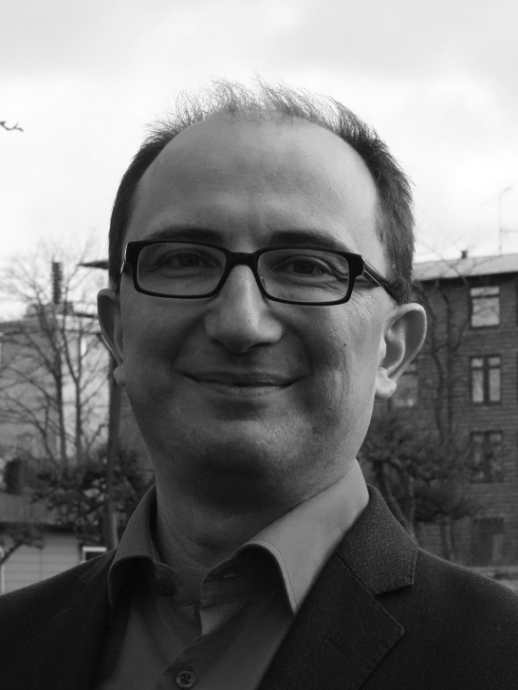
Matej
Oresic
InFLAMES Flagship
Professor, Turku Bioscience Centre
Ph.D.
Areas of expertise
Systems biology
bioinformatics
metabolomics
lipidomics
biophysics
systems medicine
computational biology
Biography
Professor Matej Orešič holds a PhD in biophysics from Cornell University. He is Professor of Medical Sciences with Specialization in Systems Medicine at School of Medical Sciences (Örebro University, Sweden), Group Leader in Systems Medicine at the Turku Bioscience Centre (University of Turku, Finland), and Guest Professor at the Oil Crops Research Institute Chinese Academy of Agricultural Sciences (Wuhan, PR China). His main research areas are metabolomics applications in biomedical research and integrative bioinformatics. He is particularly interested in the identification of disease vulnerabilities associated with different metabolic phenotypes and the underlying mechanisms linking these vulnerabilities with the development of specific disorders or their co-morbidities, with specific focus on obesity and diabetes and their co-morbidities. Dr. Orešič has also initiated the popular MZmine open source project, leading to popular software for metabolomics data processing. Previosuly, Dr. Orešič was principal investigator at Steno Diabetes Center (Gentofte, Denmark), research professor at VTT Technical Research Centre of Finland (Espoo, Finland), head of computational biology and modeling at Beyond Genomics, Inc. (Waltham/MA) and bioinformatician at LION Bioscience Research in Cambridge/MA. In 2016, Dr. Oresic received the Lifetime Honorary Fellow award from the Metabolomics Society.
Research
Our main research area is systems medicine, particularly metabolomics applications in biomedical research and related integrative bioinformatics. Specifically, we am particularly interested in the identification of disease vulnerabilities associated with different metabolic phenotypes and the underlying mechanisms linking these vulnerabilities with the development of specific disorders or their co-morbidities. Such in depth understanding of the metabolic phenotypes in health and disease is crucial if one is to implement personalized medicine. Dr. Orešič initiated the popular MZmine open source project, leading to popular software for metabolomics data processing.
Main ongoing projects:
Strategic Research Agreement, Juvenile Diabetes Research Foundation (9/2016-9/2018): Metabolomic and Proteomic markers staging progression to type 1 diabetes in autoantibody positive children – PI
Strategic Research Agreement, Juvenile Diabetes Research Foundation (9/2016-9/2018): Mother-infant interactions in relation to potential biomarkers of beta-cell autoimmunity and type 1 diabetes – PI
Academy of Finland Centre of Excellence in Molecular Systems Immunology and Physiology Research (2012-2017) - PI
Strategic Research Agreement, Juvenile Diabetes Research Foundation (Integrative multi-omic study of early progression to type 1 diabetes; 2014-2017) - PI
pHealth Programme, multi-PI collaborative project, Academy of Finland (Personalised medicine to predict and prevent Type 1 Diabetes; 9/2015-8/2019) – Co-PI
EU H2020 EPoS (Elucidating Pathways of Steatohepatitis) - Workpackage leader
EU FP7 METSY (Integrated neuroimaging and metabolic platform for characterisation of early psychosis and prediction of patient outcomes) - Coordinator
Publications
Metabolomics and lipidomics in NAFLD: biomarkers and non-invasive diagnostic tests (2021)
Nature Reviews Gastroenterology and Hepatology
(Vertaisarvioitu katsausartikkeli tieteellisessä aikakauslehdessä (A2))
Systems biology approaches to study lipidomes in health and disease (2021)
Biochimica et Biophysica Acta Molecular and Cell Biology of Lipids
(A2 Vertaisarvioitu katsausartikkeli tieteellisessä lehdessä)
Lipidomic and Metabolomic Signature of Progression of Chronic Kidney Disease in Patients with Severe Obesity (2021)
Metabolites
(A1 Vertaisarvioitu alkuperäisartikkeli tieteellisessä lehdessä )
Association Between Circulating Lipids and Future Weight Gain in Individuals With an At-Risk Mental State and in First-Episode Psychosis (2021)
Schizophrenia Bulletin
(A1 Vertaisarvioitu alkuperäisartikkeli tieteellisessä lehdessä )
Activation of pregnane X receptor induces atherogenic lipids and PCSK9 by a SREBP2-mediated mechanism (2021)
British Journal of Pharmacology
(Vertaisarvioitu alkuperäisartikkeli tai data-artikkeli tieteellisessä aikakauslehdessä (A1))
Quantitative genome-scale metabolic modeling of human CD4+ T cell differentiation reveals subset-specific regulation of glycosphingolipid pathways (2021)
Cell Reports
(Vertaisarvioitu alkuperäisartikkeli tai data-artikkeli tieteellisessä aikakauslehdessä (A1))
Interpreting the lipidome: bioinformatic approaches to embrace the complexity (2021)
Metabolomics
(Vertaisarvioitu katsausartikkeli tieteellisessä aikakauslehdessä (A2))
Transcriptomic profiling across the nonalcoholic fatty liver disease spectrum reveals gene signatures for steatohepatitis and fibrosis (2020)
Science Translational Medicine
(Vertaisarvioitu alkuperäisartikkeli tai data-artikkeli tieteellisessä aikakauslehdessä (A1))
Building an international consortium for tracking coronavirus health status (2020)
Nature Medicine
(B1 Vertaisarvioimaton kirjoitus tieteellisessä lehdessä )
4β-Hydroxycholesterol Signals From the Liver to Regulate Peripheral Cholesterol Transporters (2020)
Frontiers in Pharmacology
(Vertaisarvioitu alkuperäisartikkeli tai data-artikkeli tieteellisessä aikakauslehdessä (A1))